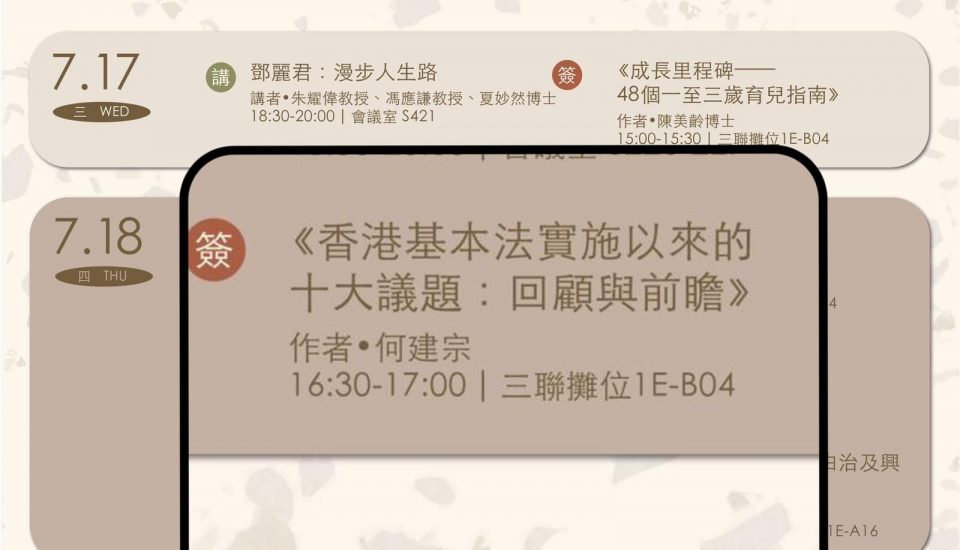Henry Ho: Narratives on China’s development prejudiced

何建宗:西方媒體偏見阻擋不了中國發展

何建宗接受新城電台《財知大道》節目訪問

This month, The Economist published an article titled China’s Risky Reboot, which reeks of prejudiced narratives about China’s manufacturing and economic development and therefore deserves a rebuttal. The article says that China has focused on mass production and exports of electric cars and batteries amid weak domestic consumption, that “America will surely block advanced imports from China or those made by Chinese firms elsewhere”, and that “Europe is in a panic about fleets of Chinese vehicles wiping out its carmakers”. The article talks about China’s “ambition” to dominate the industries of tomorrow.
It claims that China’s “wildest” ever property boom has gone bust and the property “crisis” “will hurt cash-strapped local governments”. It also suggests that China’s new initiative of developing new quality productive forces aims to “eschew the conventional path of a big consumer stimulus to reflate the economy”, and warns that “China must be prepared for the struggle ahead with America”.
This article is among an outpouring of Western propaganda that paints China in a bad light in an attempt to peddle a new version of an unsubstantiated “China threat” narrative.
Some Western governments and media outlets have resorted to scaremongering to hype up the so-called “threat” posed by China’s high-tech products, and use it as an excuse to put up protectionist measures to preserve their dominance in the global economic system.
Thanks to its reform and opening-up process in the past several decades, China has successfully upgraded its manufacturing sector from producing merely low-end consumer products to high-end electric vehicles, solar panels and other green products.
China has maintained strong growth for decades and contributed significantly to global economic growth, blazing a new path for other developing countries to elevate their economic development. Western governments’ and media’s misplaced accusations against China’s products are a mere pretext to initiate protectionist measures to curb China’s development, as well as to show China’s development model in a bad light.
Contrary to The Economist’s alarmist narrative about a “property crisis”, the Chinese central government has taken resolute action to stabilize the mainland property market to allow for a soft landing.
The authority has initiated support measures to ensure the completion of ongoing real estate projects to protect the interests of homebuyers.
Chinese banks are also well-capitalized to provide necessary financial support to property developers. According to data from the Ministry of Housing and Urban-Rural Development, more than 200 billion yuan ($27.65 billion) of loans have been approved by banks to support about 6,000 real estate projects in 276 cities nationwide as of February.
Given that the national economy is expected to grow at a rate of around 5 percent this year and the unemployment rate remains relatively low, it is believed that the mainland’s property market will stabilize and recover gradually.
With manufacturing self-reliance, homegrown technological prowess and cost-efficiency, China has surged ahead of the US and Europe in the production of electric cars, solar panels and lithium batteries — which are labeled as three new emerging high-tech manufacturing sectors in China. According to the General Administration of Customs’ statistics released in January, China’s total exports of electric vehicles, solar panels and lithium batteries surged by 29 percent to more than 1.06 trillion yuan in 2023. Chinese electric vehicle manufacturers have become increasingly competitive in the global market. Underpinned by competitive selling prices, and distinctive functionality and performance, China’s electric car exports last year surged 77.6 percent to over 1.2 million units to Asian, European and other markets, accounting for over 30 percent of the global market.
Over the past several years, China’s top electric car manufacturer, BYD, has boosted its sales to more than 3 million cars in 2023, surpassing US electric vehicle giant Tesla, which sold about 1.8 million cars last year. Instead of denigrating China’s high-quality production of electric cars and imposing more trade barriers in a protectionist move, the US should explore ways to enhance its electric vehicle industry’s efficiency to meet intense competition in the rapidly evolving global market.
Meanwhile, China has put great efforts into promoting the development of low-carbon and green manufacturing industries and accelerating a reduction in carbon emissions, doing more than its fair share to alleviate global warming and climate change. The US and some other Western countries have blamed China’s low-end manufacturing industries for causing pollution in the past but they now bash China for its massive production of electric vehicles and solar panels.
As the world increasingly embraces an era of a low-carbon and green economy, China’s exports of electric cars, lithium batteries and solar panels will help accelerate usage of renewable energy products in both developed and developing countries, including those participating in the Belt and Road Initiative, as well as the generation of more renewable energy across different countries.
China has already laid out a concrete plan to peak carbon dioxide emissions before 2030 and achieve carbon neutrality before 2060 by boosting non-fossil energy consumption and slashing carbon emissions. China’s edge in green manufacturing is a blessing for the world to combat climate change.
In addition, The Economist article misinterprets China’s new policy initiative to promote new quality productive forces. The policy aims to achieve technological advancement and breakthroughs to further the transformation of industries. The new quality productive forces are fundamental elements for achieving high-quality development and creating new business models in our country. Hostile Western politicians are skeptical of the “new quality productive forces” initiative and want to see China’s economic development moving backward — which goes against the aspiration of all Chinese people and trends around the world.
In times of geopolitical tensions, it is imperative for the central government to take account of national security concerns and initiate favorable policies to support technological innovation and help the domestic manufacturing and industrial sectors to maintain a competitive edge globally.
Above all, China has committed to uphold free-market principles and free trade as evidenced by its move to further open up the domestic market to foreign investment, in contrast with the US government’s recent protectionist trade policy.
The US has preached free trade principles when its manufacturing sectors dominated the world over the past several decades. Today, under President Joe Biden’s administration, the US government has launched unfair trade and tech wars against China under the guise of national security as its manufacturing industries face strong competition from their Chinese counterparts in the global market. It is not ethical for Washington to violate its commitments on free trade policy in order to curb China’s development.
China has strived to leverage on advanced manufacturing and technological breakthroughs to improve its people’s living standards, pursue high-quality economic development and drive the world’s economic growth. China’s advances in manufacturing and steady economic growth will only benefit the whole world.
The author is founder and chairman of the One Country Two Systems Youth Forum, and a member of the Beijing Municipal Committee of the Chinese People’s Political Consultative Conference.
The original article was published in China Daily. ( Apr 11, 2024)




